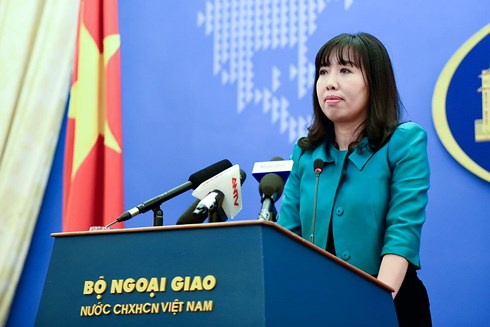VN does not manipulate exchange rates to gain commercial advantage: FM spokesperson
VGP – Viet Nam does not and will never manipulate exchange rates to gain competitive advantage, Foreign Ministry spokeswoman Le Thi Thu Hang said at the ministry’s regular press conference in Ha Noi on June 6.
 |
|
Foreign Ministry spokeswoman Le Thi Thu Hang |
Over recent times, the State Bank of Viet Nam and relevant ministries and sectors have coordinated and discussed with the U.S. Department of the Treasury the issues related to macroeconomic and foreign exchange policies, she said.
The spokesperson added that Viet Nam-U.S. relations have recently recorded positive developments, especially in the areas of economy and trade. Economic and trade cooperation is both a focus and a driving force in Viet Nam-U.S. comprehensive partnership.
Viet Nam is willing to discuss the issues that could arise in bilateral relations with the U.S., particularly regarding the fields of economy and finance, Hang stated.
Concerning a draft bill proposed by U.S. parliamentarians in late May to sanction individuals involved in China’s construction activities in the East Sea, FM spokeswoman Le Thi Thu Hang reiterated: “Viet Nam has sufficient legal grounds and historical evidence testifying its sovereignty over Hoang Sa (Paracel) and Truong Sa (Spratly) archipelagos, in line with international law”.
The parties should seriously implement the legal obligations defined by international law, including the 1982 UN Convention on the Law of the Sea, while making practical contributions to ensuring and maintaining peace, stability, security, safety, and freedom of navigation and aviation in the East Sea, she emphasized.
By Vien Nhu
